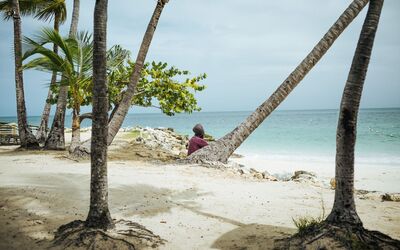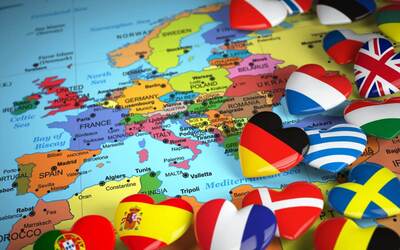The world of citizenship by investment is a massive one, and as an increasing number of Nigerians enter the fray, it is set to become even bigger. As awareness about citizenship by investment programs, especially those in the Caribbean, continues to grow in Nigeria, a large portion of applications is now owed to Nigerian applicants. This trend is set to continue, especially with the recent changes made to Saint Lucia’s and Saint Kitts and Nevis’s Citizenship by investment programs.
- Saint Kitts and Nevis’ citizenship is now cheaper and faster to obtain – but for a limited time
- The minimum investment in real estate in Saint Lucia is now $100,000 cheaper
The matter in numbers
Obtaining second citizenship from one of the five Caribbean countries that offer it, Antigua and Barbuda, Dominica, Grenada, Saint Kitts and Nevis, and Saint Lucia, has never been easier, and since the launch of the first program of its type in Saint Kitts and Nevis back in 1984, many of the world’s high-net-worth individuals have been getting their passports through investing in these countries.
Nigerians, however, have recently begun to apply in mass, as the issue gains more popularity in Nigeria. It is worth noting that three of the five Caribbean countries do not offer insights or statistics related to applicant nationality. Luckily, however, Antigua and Barbuda and Saint Lucia do offer information that can highlight the trend in Nigeria.
In Saint Lucia’s past two fiscal years, the number of Nigerian applicants to its citizenship by investment program has grown astronomically. During its 2019-2020 fiscal year, 12 Nigerian investors applied. However, the following fiscal year (2020-2021) saw 48 Nigerians apply to its citizenship by investment program, a whopping 300% increase.
The issue is mirrored in Antigua and Barbuda, as Nigerian application numbers continue to grow. Between 2016 to 2019, a trend of growth can be easily perceived, especially in 2018 when Antigua and Barbuda recorded a staggering 850% uptake in Nigerian applications (from 5 to 38 in four years), and growth has continued since then. In 2020, last year when Antigua and Barbuda published the application statistics by nationality, Nigerian investors made up a whopping 12% of all applications to the program.
In a country where 35% of its populace has, at one point or another, considered emigrating according to a 2018 study, it is no surprise that more Nigerians are interested in obtaining second citizenship, especially considering the simplicity and affordability of Caribbean citizenship by investment programs.
A testament to this increasing demand is the growing number of investment migration firms that offer citizenship by investment services opening offices in Nigeria, as over 15 international firms have set up shops in Lagos or Abuja to serve the growing demand.
Antigua and Barbuda: interview with a Nigerian investor who has obtained citizenship
The main drivers for Nigerians
There are various reasons Nigerians are applying for Caribbean citizenship. The current political and economic situation in Nigeria is driving many to look for better options elsewhere, or at least set up a plan B in case matters take a turn for the worst. Here are the main reasons Nigerians are applying for second citizenship.
Greater safety & security
Nigeria has been plagued by political turmoil for some time now, and as Boko Haram continues to sow discourse throughout the nation, many are looking to ensure the safety of themselves and their families by investing in second citizenship as a contingency plan.
Nigeria currently sits 6th worldwide on the Global Terrorism Index, making it one of the most terrorism-susceptible countries in the world.
Economic reasons
While there is a lot of wealth in Nigeria, the current situation makes it difficult for people to maintain – let alone expand – their wealth.
Second citizenship can offer another business outlet, asset base, or wealth protection framework for an investor in another country. The Caribbean, being blessed with robust banking and financial service sectors, offers Nigerians a great option to mitigate any economic turmoil.
Not only that, their citizenship by investment programs directly offers an option to hedge against inflation through their real estate option. Inflation in Nigeria in 2021 hit a staggering 19.64%, a massive amount on any scale. During inflationary times, many heads towards investing in real estate, however, by investing in Caribbean citizenship instead of property in Nigeria, they can gain a second passport while also fighting off the dire effects of inflation.
Antigua & Barbuda, for example, offers a real estate option under its citizenship by investment program that requires a $200,000 investment. Inflation in Antigua & Barbuda during 2021 hit a measly 2.1%, a far cry from the situation in Nigeria. What is more interesting, however, is that returns on real estate investment in Antigua & Barbuda average between 3-4%, higher than current inflation rates and providing investors a way to not only hedge against inflation but make a profit while doing so.
Considering that property prices in Nigeria continue to grow, while rental yield averages (about 0.09%) are nowhere near adequate enough to cover inflation, investing in the Caribbean and getting second citizenship is becoming much more attractive.
Enhanced global mobility
Another major driver for getting Caribbean citizenship is enhanced visa-free travel. The Nigerian passport allows its holder to travel to 46 destinations without a visa, the majority of which are located in Africa. In comparison, Saint Kitts and Nevis’ passport provides visa-free travel to 157 destinations worldwide. More than three times that of Nigeria.
However, the numbers do not tell the entire story, as Saint Kitts and Nevis’ passport allows its holder to travel visa-free to highly desired locations such as the UK, EU, Hong Kong, Singapore, and many more, which the Nigerian passport cannot access without a visa. This access to the EU and the UK is significant when one takes a closer look at visa rejection rates for Nigerians.
For example, the German embassy in Lagos rejected 40% of all Schengen visa applications in 2021, while the Spanish embassy in Lagos rejected a staggering 69.91%, and Sweden’s embassy rejected a massive 89.82%. The situation for Nigerians applying for a UK visa wasn’t much better in 2021, as 32.16% of all applications from Nigerians were rejected.
A Caribbean second passport alleviates this issue and offers Nigerians the ease of movement they need.
A simple process
Nigerians can now obtain Caribbean citizenship through a highly simplified process consisting of a few steps:
- Contact Migronis to book a free consultation
- Sign a contract with Migronis concerning the citizenship of the investment program of your choice
- Collect the relevant documentation
- Migronis will apply to the program on your behalf
- The relevant government will review the application and conduct a background check
- Obtain approval in principal within a few months (3-4 on average)
- Make the required investment
- Obtain your new passport and certificate of citizenship through Migronis
The process is simple and does not require any travel to the Caribbean, it takes between 3-6 months with an expedited option available in Saint Kitts & Nevis, and applicants can add various dependent family members such as their spouse, children, siblings, parents, and grandparents to their application.










